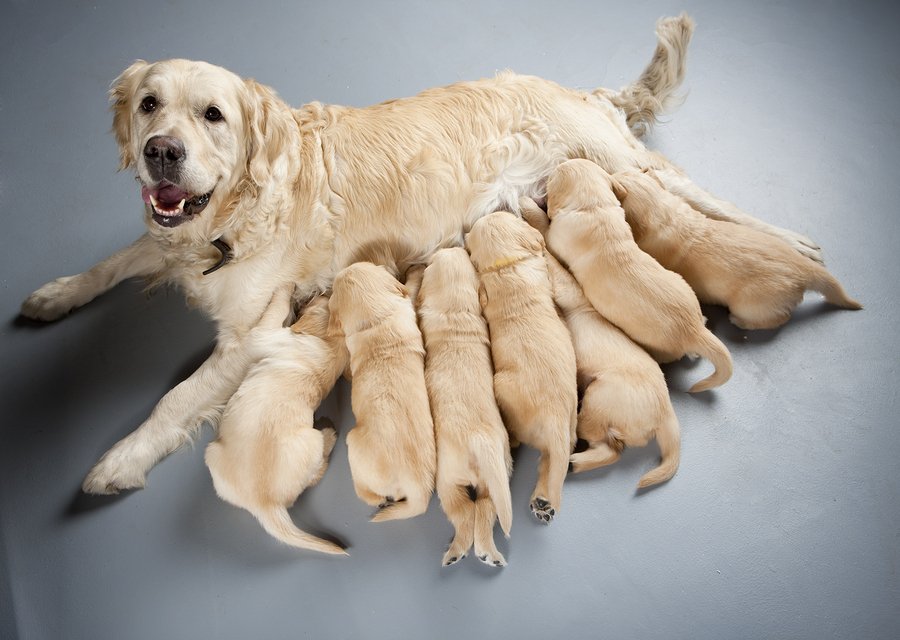
Bringing new life into the world is a beautiful experience, and when it comes to our furry friends, dog pregnancy is an exciting journey for both the dog and its human companions. However, recognizing the signs of pregnancy and understanding the gestation period are crucial aspects of responsible dog ownership. In this exploration, we’ll explore the telltale signs of dog pregnancy and delve into the fascinating journey of canine gestation.
Signs Of Dog Pregnancy
- Changes in Appetite: Just like humans, pregnant dogs may experience fluctuations in appetite. Some may eat more than usual, while others may lose interest in food altogether. It’s essential to monitor your dog’s eating habits and consult your veterinarian for dietary recommendations.
- Weight Gain: As the pregnancy progresses, you may notice your dog’s abdomen expanding as she gains weight. However, weight gain can also be attributed to other factors, so it’s essential to confirm pregnancy through veterinary examination.
- Nesting Behavior: In the weeks leading up to delivery, pregnant dogs may exhibit nesting behavior, such as gathering blankets or bedding to create a comfortable space for birthing.
- Changes in Nipples: Around the third week of pregnancy, a dog’s nipples may become enlarged and darker in color. Additionally, you may notice milk production (colostrum) from the nipples as the due date approaches.
- Behavioral Changes: Pregnant dogs may display changes in behavior, such as increased affection, restlessness, or nesting instincts. Some dogs may also become more protective or territorial as they prepare to welcome their puppies.
- Physical Changes: As pregnancy progresses, you may observe physical changes in your dog’s body, including a swollen abdomen, increased sleepiness, and even morning sickness (vomiting or nausea) during the early stages.
Dog Gestation Period
The gestation period for dogs typically lasts between 58 to 68 days, with the average being around 63 days. However, the exact duration can vary depending on factors such as breed, age, and litter size. It’s essential to keep track of the mating dates and consult your veterinarian for guidance throughout the pregnancy.
During the gestation period, your dog will go through three distinct stages:
- Early Pregnancy: The first few weeks of pregnancy are characterized by the fertilized eggs implanting in the uterine lining. During this time, it may be challenging to detect pregnancy through physical signs alone.
- Mid-Pregnancy: By the midpoint of pregnancy, the embryos have developed into fetuses, and the dog’s abdomen will begin to visibly enlarge. This stage is crucial for proper fetal development, so it’s essential to provide adequate nutrition and prenatal care.
- Late Pregnancy: In the final weeks leading up to delivery, your dog will exhibit more pronounced signs of pregnancy, such as nesting behavior, milk production, and a noticeable increase in belly size. It’s essential to prepare a quiet and comfortable birthing area for your dog to deliver her puppies.
Dog pregnancy is a remarkable journey filled with anticipation, excitement, and a few surprises along the way. Whether you are an experienced dog owner or encountering this experience for the first time, understanding the stages of pregnancy and the care your dog requires is essential.
The gestation period for dogs typically lasts around 58 to 68 days, during which your pet will go through significant physical and behavioral changes. Early signs of pregnancy may include changes in appetite, mild lethargy, and a slight increase in weight. As the pregnancy progresses, you may notice more pronounced weight gain, swelling of the abdomen, and nesting behaviors as your dog prepares for the arrival of her puppies.
Providing proper nutrition, a comfortable environment, and regular veterinary check-ups will help ensure a healthy pregnancy. Your vet can confirm pregnancy through ultrasound or physical examination and offer valuable advice on caring for your dog during this time.
As your dog nears labor, she may become restless, lose her appetite, or seek a quiet place to give birth. Understanding these signs will help you provide the necessary support. If you suspect your dog is pregnant or have concerns about her health, consult your veterinarian for guidance to ensure a safe and smooth pregnancy.


